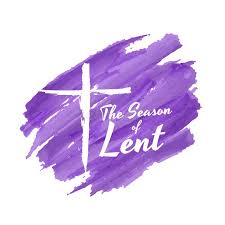Palm Sunday
 Palm Sunday is an example of worshiping Jesus as Savior, Messiah, King, and Lord. He is the son of God. To see Jesus as he truly is and worship him accordingly; also, to worship him in right -order. Jesus is the great healer. Jesus loves us so much; we are so blessed.
Palm Sunday is an example of worshiping Jesus as Savior, Messiah, King, and Lord. He is the son of God. To see Jesus as he truly is and worship him accordingly; also, to worship him in right -order. Jesus is the great healer. Jesus loves us so much; we are so blessed.
On Palm Sunday we need to worship God with our Hearts, Soul, and in our Lives. We need to act like citizens of heaven with a daily call to live as God has called us to live. At every Mass we are worshiping Jesus Christ as King and Lord in the Eucharist. We should worship him publicly at Mass and in our homes and also wherever we are.
People are connected on Palm Sunday with the Majestic King. We have the privilege of multiple options to attend Mass and Adoration daily. Every opportunity we take to attend Mass is a delight in Jesus’s eyes.
One of the fruits of worshipping the Lord is to be caught up in the Heavens with Jesus. The Lord desires us to worship him with our Heart. He inhabits the praises of His people no matter if we are feeling sad, worried or afraid. It is wonderful to have Jesus Christ as our Savior. The Lord loves us so much; that he willingly died to save us, the least we can do is to continue to seek him in all we do.
~ written by Patricia Stancato-Purkey, CLM
The Fifth Sunday in Lent
 How interesting that Pope Francis has announced a year to honor St. Joseph. In the midst of Lent, we celebrated the Feast Day of St. Joseph on March 19th.
How interesting that Pope Francis has announced a year to honor St. Joseph. In the midst of Lent, we celebrated the Feast Day of St. Joseph on March 19th.
In this coming Sunday’s Gospel, John 12:24-26, we hear, “Amen, amen, I say to you, unless a grain of wheat falls to the ground and dies, it remains just a grain of wheat; but if it dies, it produces much fruit.” These verses make me think of St. Joseph. He struggled when he learned that Mary was pregnant. Imagine looking forward to getting married and then everything changed. But, when God sent a message to him through a dream, he realized that he was being called to something greater. He believed in God from the depths of his heart. I’m sure it wasn’t easy to deal with the fact that he was going to be a step-father to Jesus. St. Joseph had to have deep faith in order to get through all that he did. I think that St. Joseph allowed the grain of wheat to fall to the ground and die. Perhaps, what fell to the ground was his hopes, his dreams, whatever he was planning. But, he said, “Yes” to God and allowed new life to come through the death of his own will.
Reflection: What do I need to let fall to the ground and die?
Can I say, “Yes” to God’s will for me?
~ by Lorraine Campanelli, CLM, Director
The Fourth Sunday in Lent
 H.E. Paul D. Etienne, Archbishop of the Archdiocese of Seattle, declared a Year of the Eucharist in our archdiocese from June 2020 to June 2021. Such a declaration, I think, is very timely during this difficult time of pandemic.
H.E. Paul D. Etienne, Archbishop of the Archdiocese of Seattle, declared a Year of the Eucharist in our archdiocese from June 2020 to June 2021. Such a declaration, I think, is very timely during this difficult time of pandemic.
We need the Eucharist in our lives more than ever. The pandemic is not an impediment for us not to attend the holy Mass. In fact, this time is a great opportunity for us to maximize the benefits of the Holy Eucharist through the power of technology. Our current eucharistic life is now celebrated virtually or physically wherever it is viable. For those with limited internet or those with no internet at all, I heard they use the traditional use of radio or other indigenous ways of celebrating it. Regardless of how we participate, it becomes a viable alternative for all of us to receive the body and blood of Christ.
Interestingly, Pope Francis declared this year as the Year of St. Joseph in celebration of St. Joseph’s 150th anniversary of his declaration as Patron of the Universal Church. We also celebrate his feast day this month. St. Joseph obeyed God with simplicity, silence, and humility. I think his characteristics resonate with what we need to focus on. There is too much noise hovering around us and at times we find it hard to see the simple things in life, to feel the silence of our hearts, and to experience the fruits of humility.
Covid 19, is a virus that is so silent yet extremely dangerous. If this is how silent and deadly the virus is, maybe we need silence to fight it back through the solemnity of each holy Mass being celebrated around the world.
Moreover, we need the intercession of St. Joseph especially during this Lenten season. May his faith and obedience to God be a guiding force and hope for all of us as we continue to rise above the pandemic.
~ reflection by Vicky Lucio, CLM
A Reflection for the Third Sunday in Lent
Joan Chittister, a Benedictine Sister, author and a woman of inspiration shares this Lenten reflection:
Lent is a call to weep for what we could have been and are not. Lent is the grace to grieve for what we should have done and have not. Lent is an opportunity to change what we ought to change, but have not.
Lent is not about penance. Lent is about becoming, doing and changing whatever it is that is blocking the fullness of life in us right now.
Reflection: What are those things that keep us from living a fully Christian life?
Let us pray for guidance. Let us pray for the courage to make those life changes that will bring us more fully into the life of our Christian community. ~ by Marianne McGowan, CLM
A Reflection for The Second Sunday in Lent
Lenten prayers?… Check. Fasting?… Check. Giving?…Check.
We’re now one full week into Lent, and everyone is busy checking those three major boxes for the season. List-users love this little way to get ourselves complete for Lent. It’s a useful tool, but a tool has never been held responsible for art.
The season of Lent, as the banners in church remind us, is meant to be a reconciliation – a coming back to our God. That doesn’t have to be a scary word, or even as dramatic as potentially sacrificing your own child. It is an invitation to ask ourselves how much we walk with God in our everyday lives. Do we know who goes before us? Do we know who stands behind us? The second reading this week reminds us that all is well when we go through life allowing God to be our guide and companion. This week, let’s focus on simply being aware of grace within the little moments and be thankful for the spirit of God among us. ~ by Melanie Paccillo, CLM
A Reflection for the First Sunday in Lent
Sometimes I hear people say, “I don’t know how you could miss it, it’s so obvious.” Well, I think very often, we can miss the obvious. For example, in the readings for Mass on the First Sunday of Lent, three times we are told how we can attain Heaven and be with God. But, do we always get it?
In Genesis 9:8-9, God said to Noah and his sons, “See I am now establishing my covenant with you and your descendants after you. We ARE those descendants!! We are the people to whom God was referring. The covenant with Noah, which is often depicted as the rainbow, was not only meant for him, his family and friends, but for generations to come. The same God has made a covenant with you and me.
descendants after you. We ARE those descendants!! We are the people to whom God was referring. The covenant with Noah, which is often depicted as the rainbow, was not only meant for him, his family and friends, but for generations to come. The same God has made a covenant with you and me.
In 1 Peter 3:18, we are again reminded that God is there for us and gives us a pathway to follow. All we have to do is respond. In 1 Peter, we are called ‘Beloved’, a term of endearment, a term of relationship. We are told that Christ suffered for sins once so that we might be led to God.
In the Gospel of Mark, Chapter 1 verse 15, we are told how to reach the Kingdom of God: “The Kingdom of God is at hand, REPENT and BELIEVE in the Gospel”. The Kingdom is here and now, not after I die and go to Heaven.
As we begin our Lenten journey, we know straight from God that God wants us, we have a covenant with God, we are God’s beloved and if we repent and believe in the Word of God, we will be with God not only in this life but in the life to come. ~ by Lorraine Campanelli, CLM Director
Reflection: – What touched my heart in this reflection?
-Do I really believe that I am God’s beloved?
-What can I do this Lent do repent and believe even more deeply on the Word of God
A Reflection for Ash Wednesday
Cinderella and the Ashes
Recently I read in Ronald Rolheiser’s Daybreaks, Daily Reflections for Lent and Easter Week, that the story of Cinderella, a century old wisdom tale, has some relevance for Ash Wednesday.
The name Cinderella literally means “the young girl who sits in the cinders”. Actually, she slept by the hearth in the ashes where her step-mother sent her to be humiliated. While I have not given Cinderella, the fairy tale, a thought since I was seven years of age, other wiser people have done so, and we are told that the morale of the story is clear: before the glass slipper, the ball gown, and the Prince, there is a time of humiliation. There seems to be a theology of Lent in this tale.
Ashes are mentioned forty-two times in the Old Testament, but merely four times in the New Testament. When they are mentioned they refer to incidents in the Old Testament such as Tyre and Sidon and Sodom and Gomorrah, when sackcloth and ashes were dress of the day. In the Old Testament ashes are symbolic: first, of man’s humanity, his creation from the earth, dust, or ashes. Abraham called himself “dust and ashes” when he spoke to the Lord. God says to Adam and Eve in the Garden “Remember man that you are dust and unto dust you shall return.”
spoke to the Lord. God says to Adam and Eve in the Garden “Remember man that you are dust and unto dust you shall return.”
Ashes are also symbolic of mourning in the Old Testament, and last but not least, they are symbolic of repentance. We all learned this in Sunday school, or at Mass, or in another formative setting. So, on Ash Wednesday we stop to recall that we are humans, made from ash, and that we have not lived up to all we were created to be as humans. Then we repent.
It is interesting that more people go to Church on Ash Wednesday than on any other day of the year, even Christmas. Why? Receiving the ashes is an act of humility, and act of penance, but also, I believe, an act publicly declaring that we belong to God and to the community of believers to whom we are admitting that we have sinned. We wear our ashes like a tattoo, i. e. we belong to this gang or tribe that is serious about following Jesus into the dessert and all the way to Easter Sunday.
To return to poor dusty Cinderella who we left in the ashes, we will need to take a step forward in the tale to learn the moral of the story. With the help of her Fairy Godmother, the former beggar who she helped, (you see where this is going now!) she is able to get her act together and be transformed. Soon she is taken out of the ashes and from the chimney, and then on to the castle for the Ball by the Prince.
This is both our lesson and our consolation as we prepare for Lent: “The Lord indeed raises up the needy from the dust, lifts up the poor from the ash heap, and seats them with princes.” ~ by Pat Krasnausky, CLM

